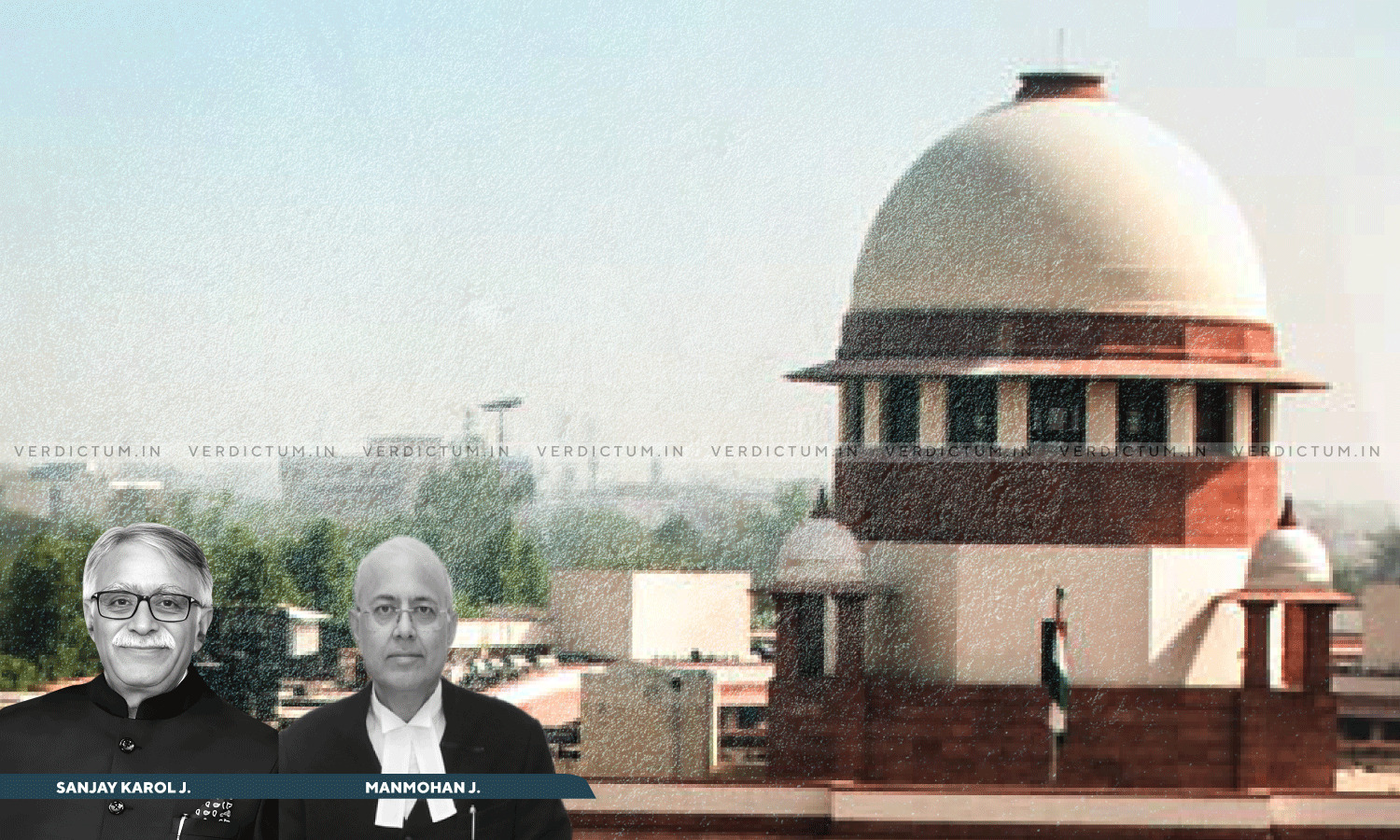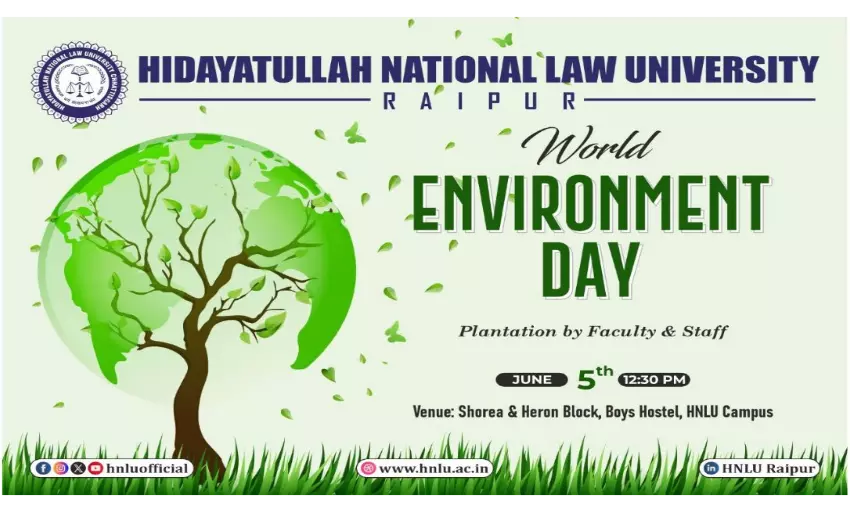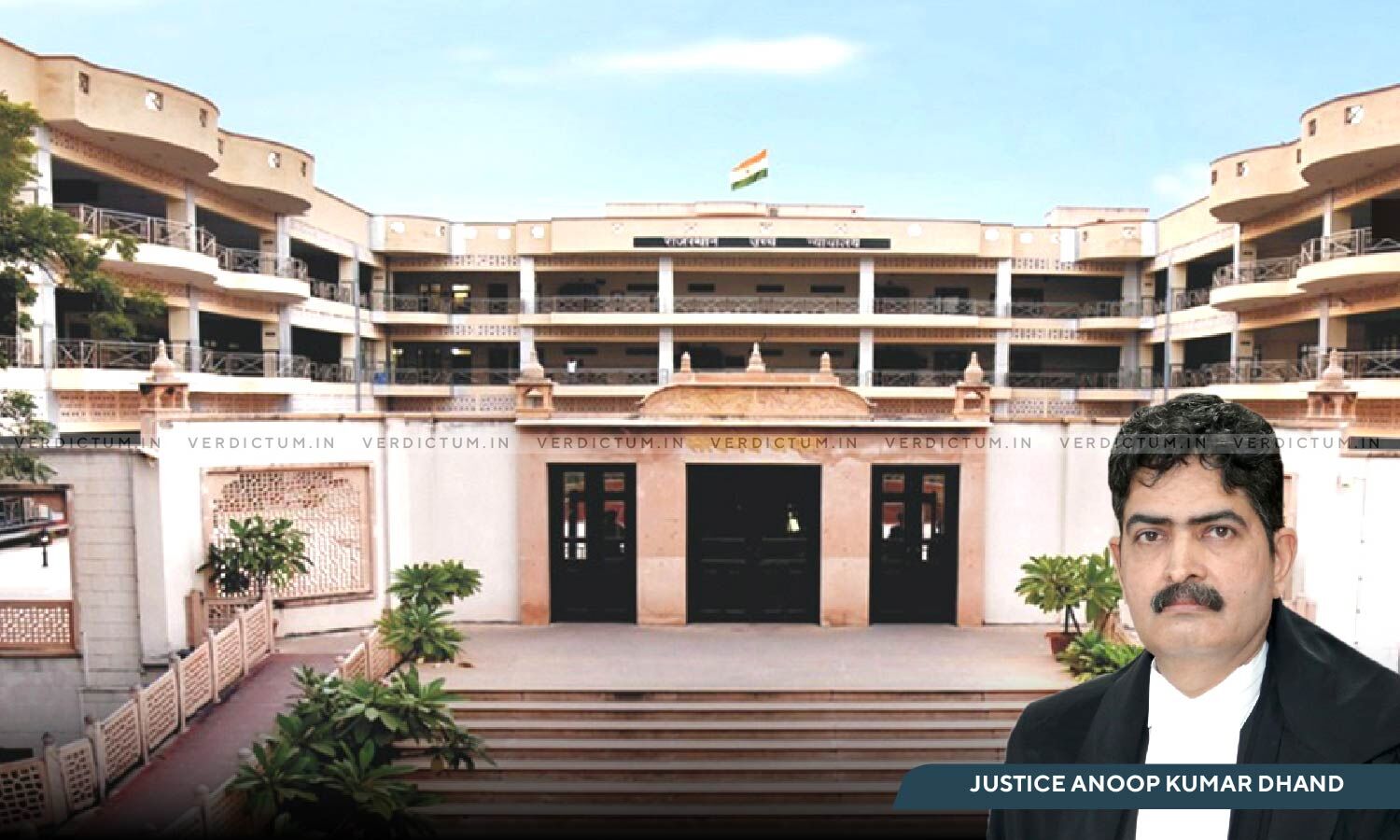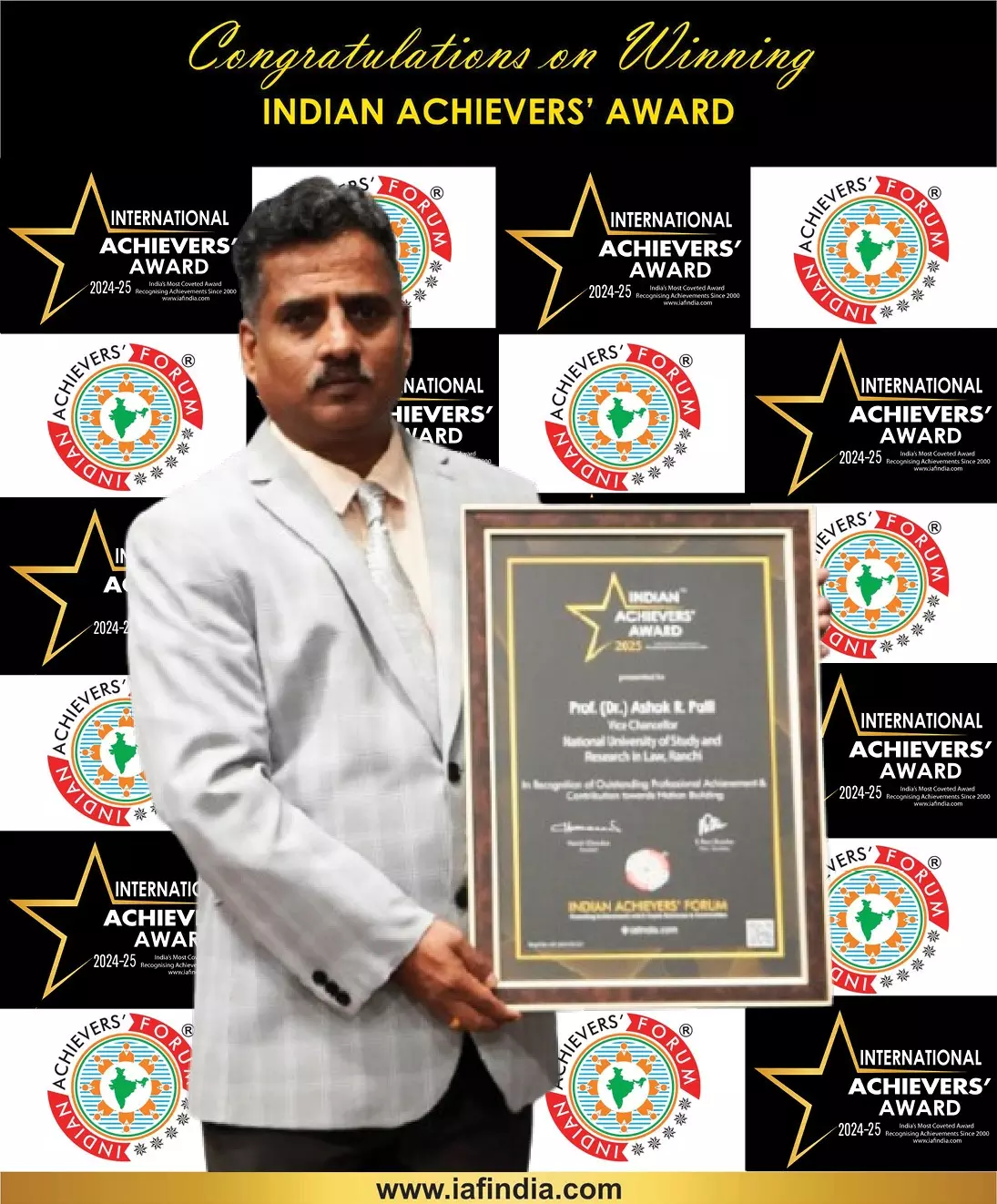Maharashtra Co-operative Societies Act | Alienation Of Charged Property Not Void u/s 48(e) Unless Society Challenges Transaction : Supreme Court
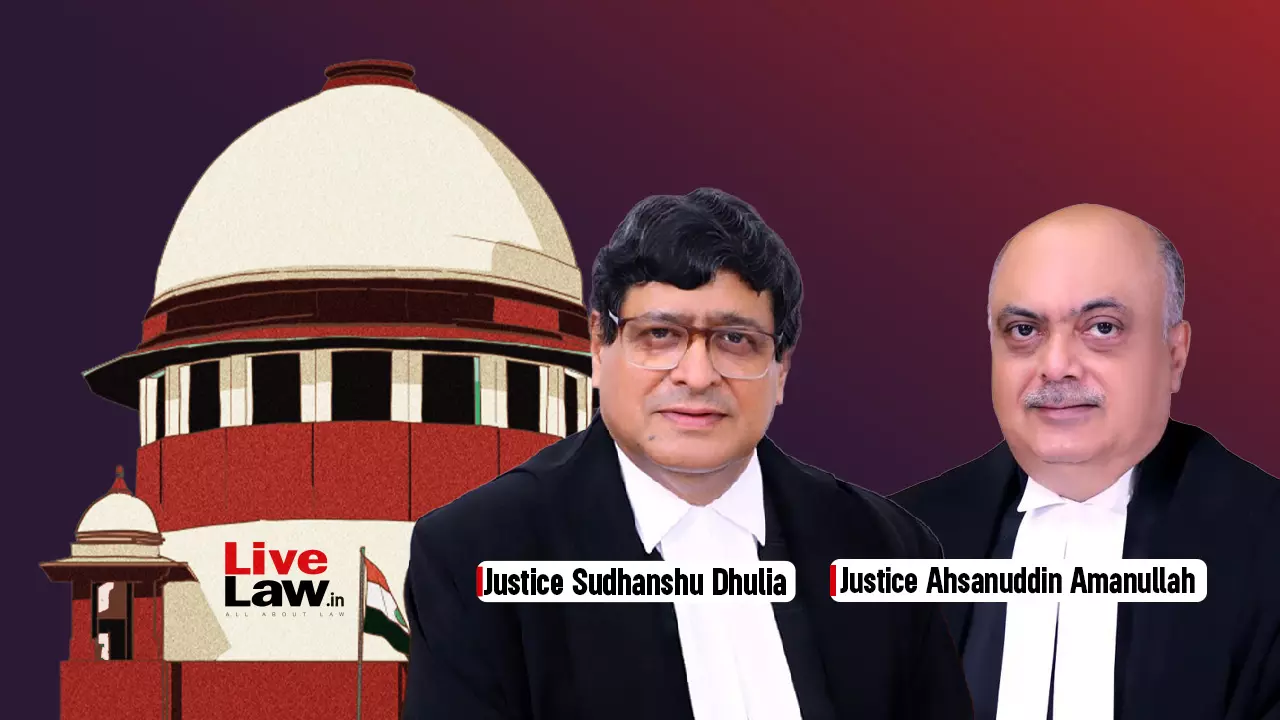
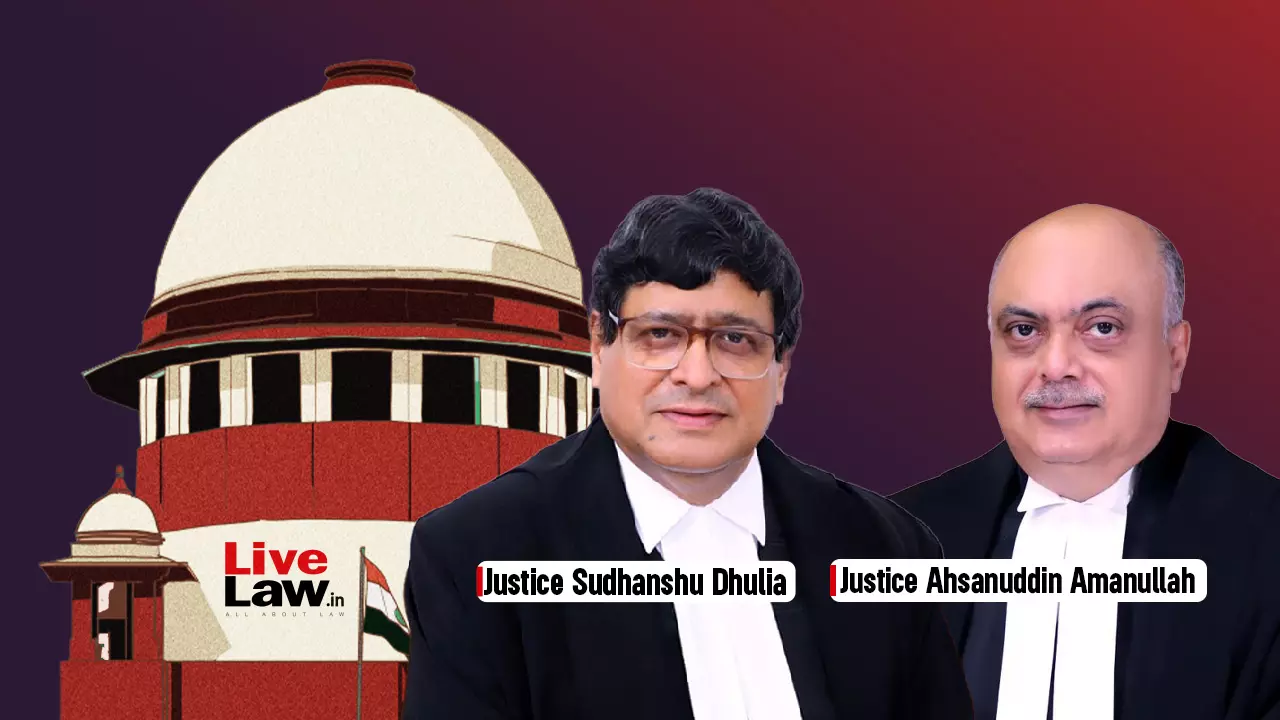
The Supreme Court held that an alienation of property, on which a charge is created in favour of a Co-operative Society, would be void as per Section 48(e) of the Maharashtra Co-operative Societies Act, 1960, only if the concerned Society seeks nullification of the transaction. In other words, such a transaction is not void abinitio and is only voidable at the instance of the society.
If the Society does not come forward to enforce the charge and seek the nullification of the alienation, a third party cannot argue that the transaction is void.
A bench of Justices Sudhanshu Dhulia and Ahsanuddin Amanullah observed,
“Section 48(e) of the Act which says that any alienation made in contravention of the provisions of clause (d) shall be void has to be read as directory to the extent that the same can be acted upon only at the instance of the party aggrieved (viz. the society concerned) upon whom the right has been created under the statute. In other words, with regard to a transaction, unless the society comes forward to seek its nullification/setting aside, the same would at best be a voidable action and not void ab initio.”
Factual Background
The Court was dealing with a case where the original plaintiff created a charge in 1969 on his ancestral property (the suit property) in favor of a registered Co-operative Society to obtain a loan. Subsequently, the plaintiff obtained a loan of Rs.5000 from his nephew (defendant No.1). As security, he executed a registered Sale Deed dated 02.11.1971 of the suit property in defendant No.1’s favor. Apparently, on the same day, defendant No.1 also executed a Reconveyance Deed stating that he would reconvey the suit property to the plaintiff on repayment of Rs.5000.
In 1972, defendant No.1 executed a registered Sale Deed with respect to part of the suit property in favor of another person (defendant No.2). On learning about the same, the plaintiff filed a suit seeking possession of the property and reconveyance. In 1973, the Society passed a resolution releasing the suit property from its charge, on account of repayment of the due amount by the plaintiff.
The Trial Court held that the 1971 Sale Deed executed in favor of defendant No.1 was void under Section 48 of the Maharashtra Co-operative Societies Act, 1960. It passed a decree for possession and directed defendant No.1 to execute a reconveyance deed in favor of the plaintiff after receiving Rs.5000. After some rounds of litigation, a Single Bench of the Bombay High Court set aside the decree of possession and dismissed the plaintiff’s suit. When a Division bench dismissed the plaintiff’s appeal, he approached the Supreme Court.
Supreme Court Observations
The Court referred to Section 48 of the 1960 Act to note that alienation of any property on which a charge is created in favor of a cooperative society by way of declaration is totally beyond the capacity of the owner/member who has declared it as a charged property, until the amount, for which the charge was created along with the interest, is repaid in full.
“However, even if a part of the amount due is paid then a society may, on an application moved by the member, release from charge such part of the property, as it may deem proper having regard to the outstanding amount.”
On facts, the Court noted that the amount for which the charge was created was neither repaid to the Society (in full or in part) nor any such application for part-release filed or accepted by the Society prior to the 1971 sale. It further considered the effect of the Society’s subsequent release of its charge on the suit property.
“Section 48(c) of the Act relates only to variation of the declaration, but by obvious and necessary implication, it would include conclusion/release of the charge itself, in case the entire dues of a society are satisfied by the member who made the declaration. In the present case, the Society had itself resolved to release the charge on the suit land on 27.08.1973.”
The judgment, authored by Justice Amanullah, underlined that the Society’s interest had not suffered. It further lent importance to the conduct of the parties involved in arriving at a decision.
It was stated that the primary purpose of Section 48(e) of the 1960 Act is to safeguard the interest of the society which advanced the loan. As a corollary, the right to sue or get a declaration qua any alienation made by a loanee rests and is available only to the society in favor of whom the property under a declaration was charged.
“It would, therefore, not be within the domain of the member-loanee who himself commits a breach to take a stand that the act done by him should be declared void, without the society coming forward before an appropriate forum to set aside such alienation. The law cannot, and does not, reward a person for his/her own wrongs.”
Deeming Section 48(e) to be directory in nature, the Court said that unless the society comes forward to seek a transaction’s nullification/setting aside, the same would at best be a voidable action and not void ab initio.
Besides the foregoing, the Court doubted the genuineness of the Reconveyance Deed said to have been executed by defendant No.1 and observed that defendant No.2 was a bonafide purchaser.
Conclusion
In closing, the Court noted that on one hand, the plaintiff (represented by his LRs) wanted the Court to nullify his actions as void, and on the other, wanted relief in his favor. Declining to permit him to benefit from his own wrong, the Court upheld the decisions of the High Court which set aside the suit decree.
“It would not be proper for a Court of law to assist or aid such person who states that the wrong he committed be set aside and a relief be granted de hors the wrong committed, after condoning the same. In the present case, the plaintiff cannot be allowed to benefit from his own wrong and the Court will not be a party to a perpetuation of illegality.”
Case Title: MACHHINDRANATH S/O KUNDLIK TARADE DECEASED THROUGH LRS v. RAMCHANDRA GANGADHAR DHAMNE & ORS., SPECIAL LEAVE PETITION (CIVIL) NO.7728 OF 2020
Citation : 2025 LiveLaw (SC) 667


